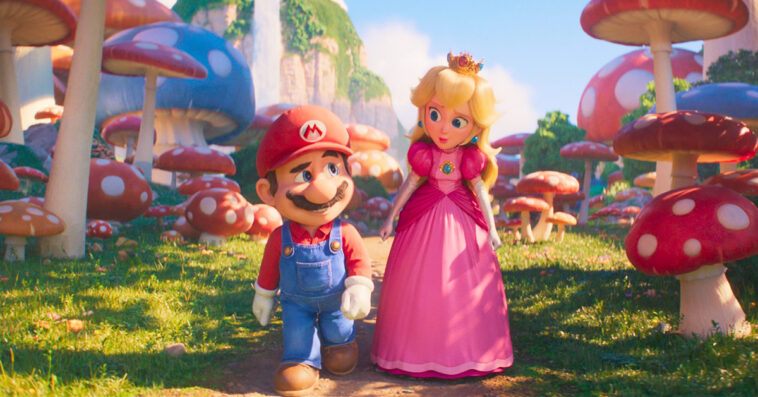For decades, fans have woven intricate theories and imagined fairytale endings for gaming’s most iconic duo, Mario and Peach. Was it unrequited love, a slow-burn romance, or just a hero’s duty? From countless castle rescues to shared adventures across Mushroom Kingdom, the question of their true relationship has sparked endless speculation. But now, after years of hopeful fan fiction and “will-they-won’t-they” debates, Nintendo itself has finally weighed in, delivering an official statement that might just shatter some long-held dreams and confirm what many secretly suspected.
Nintendo Today! Quietly Ends Decades of Mario and Peach Romance Speculation
In a surprising turn that has left fans of the Super Mario franchise reeling, Nintendo has clarified the relationship status of two of its most iconic characters: Mario and Peach are officially “good friends.”
The revelation came via a character profile posted on the Nintendo Today app, which briefly featured a line stating, “Princess Peach and Mario are good friends and help each other out whenever they can.” Although the post has since been rotated out as part of the app’s regular updates, it was preserved by several users, including Twitter/X user @KirPinkFury, who shared screenshots of the statement online.
“Princess Peach and Mario are good friends and help each other out whenever they can.”
Via: Nintendo Today app. pic.twitter.com/IsyQqe2KLz
— Kābī (@KirPinkFury) July 23, 2025
The clarification has sparked a mix of surprise, debate, and humor across social media, as longtime fans grapple with what this means for decades of perceived romantic tension between the characters. For many, Mario and Peach’s relationship has long been understood—if unofficially—as something more than platonic, with recurring storylines featuring heartfelt rescues, shared adventures, and the occasional post-victory kiss (not to mention several offers of freshly baked cake).
Commentators have pointed out that the phrase “good friends” doesn’t necessarily preclude romance, but the choice of words still caught many off guard. After all, fans argue, it’s rare to hear a couple described in such purely platonic terms—especially after 40 years of shared screen time.
Fans Question Nintendo’s Motives Behind Mario and Peach Relationship Update
Following its recent clarification that Mario and Peach are simply “good friends,” fans are left wondering: does this mark a quiet retcon of one of gaming’s most iconic will-they-won’t-they dynamics?
The official statement has led many to question whether Nintendo is subtly rewriting history. While the phrasing may appear innocuous on the surface, long-time fans are noting a clear tonal shift from earlier portrayals of the duo.
Historically, Nintendo has not shied away from suggesting a romantic connection between Mario and Peach. In multiple games and promotional materials, Peach has been referred to as Mario’s “special someone.” Developer Yoshiaki Koizumi even remarked in a past interview that Mario “carries a torch” for the princess. At least one official Valentine’s Day promotion depicted the two as a couple, complete with hearts and affectionate poses. And in Super Mario Odyssey, Mario famously attempts to propose to Peach, but the latter, fresh from a dramatic forced marriage attempt by Bowser, declines.
While Nintendo has often left the exact nature of their relationship open to interpretation, the company’s messaging over the years has leaned heavily toward romantic suggestion. The new “good friends” label, however, seems to reset that narrative, aligning Mario and Peach with other Nintendo pairs such as Link and Zelda—another duo frequently interpreted as romantic partners but rarely confirmed as such in canon.
Whether the update reflects a broader shift in branding, a move toward ambiguity, or simply an editorial oversight remains unclear. For now, fans are left to decide whether to accept the new definition at face value—or take it with a grain of salt.
Source: IGN

